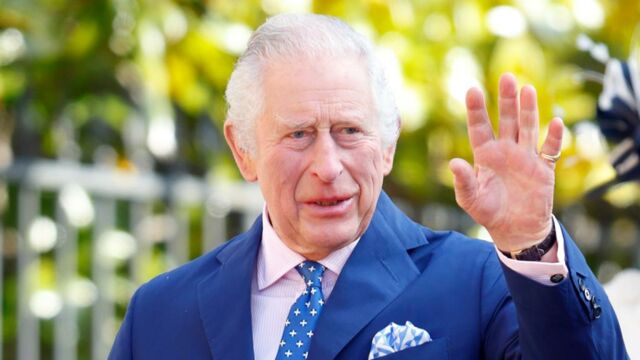King Charles: The Palace announces the monarch to undergo surgery, what is an enlarged prostate?

Wednesday 17 January 2024 is not the British monarchy’s day. King Charles’ staff have just announced that he will undergo surgery next week for an enlarged prostate.
An hour after it was disclosed by Kensington Palace that the Princess of Wales had been admitted to the hospital for abdominal surgery, Buckingham Palace released a statement announcing that King Charles suffers from an enlarged prostate which requires him to have surgery next week.
Discover our latest podcast
Though nothing was specified about the nature of the Princess’ surgery, the Palace has shared the reason for the King’s upcoming procedure. So what is an enlarged prostate and how long will it take for him to come back to duty?
More under this adMore under this adKing Charles’ enlarged prostate, what is it?
According to the NHS, an enlarged prostate is absolutely benign. They specify immediately that ‘it is not a cancer and it's not usually a serious threat to health’.
Moreover, they also make it crystal clear that having an enlarged prostate doesn’t put you at a higher prostate cancer risk.
More under this adMore under this adThe symptoms of an enlarged prostate are:
- ‘difficulty starting to pee
- a frequent need to pee
- difficulty fully emptying your bladder’
Though the causes for an enlarged prostate are ‘unknown’, the NHS states that ‘it is believed to be linked to hormonal changes’ occurring when men get older. As a reminder, King Charles turned 75 in November 2023. He is the oldest person to ever be crowned King in Britain.
Finally, the NHS highlights that surgery is only needed when the patient suffering from an enlarged prostate ‘has not responded to medicine’ in a moderate or severe case of the situation.
More under this adMore under this adHow long will King Charles be in recovery?
As the NHS says, this condition is benign, however it can have complications. On the NHS’ website they list three: ‘urinary tract infection (UTI), chronic urinary retention and acute urinary retention’.
According to the NHS, the surgery the monarch is going to undergo is called Transurethral resection of the prostate (TURP). It involved removing a part of the prostate. During this procedure ‘a device called a resectoscope' is 'passed through the urethra’.
More under this adMore under this adThe NHS specifies that after a TURP the patient is expected to ‘need to recover in hospital for 1 to 3 days’ before returning home. Moreover, it is explained that after the procedure it is ‘common to feel tired and under the weather for a week or two’ though most men are completely fine after 3 to 4 weeks.
The NHS states that returning to work can usually take 3 to 4 weeks after the procedure.
Read more:
⋙ King Charles: £8 million project to promote monarch slammed as new portrait has been revealed
⋙ King Charles must say goodbye to his most senior aide due to tradition
⋙ Princess Anne: This is how the royal has become King Charles right-hand woman
Sources:
SkyNews: The King will attend hospital for prostate treatment, palace says
NHS: Overview - Benign prostate enlargement
NHS: Treatment - Benign prostate enlargement
NHS: Recovery -Transurethral resection of the prostate (TURP)